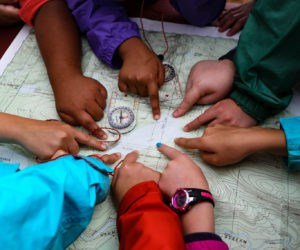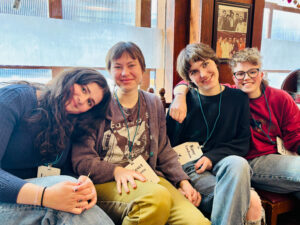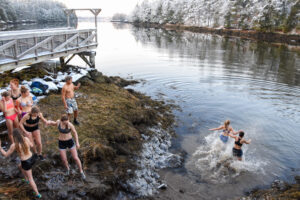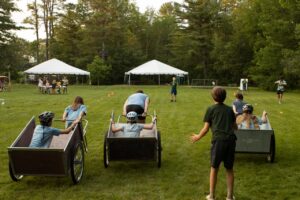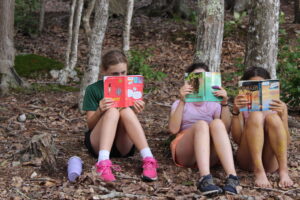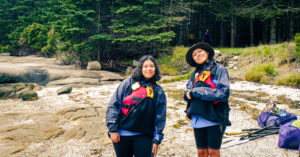It’s 5 degrees under a blue sky and the 41 new students of Maine Coast Semester at Chewonki are digging in. They have only been here 10 days but they are starting to look right at home. They know where to eat, take a shower, compost, and find their classes (“Where’s the Fish Bowl?”). They can wend their way to the Chewonki Ice Arena (aka the Frog Pond) for skating and ringette. They can navigate to their cabins in the dark and keep their woodstoves glowing. They understand that if they slept through farm chores, they’d disappoint hungry, thirsty animals as well as people.
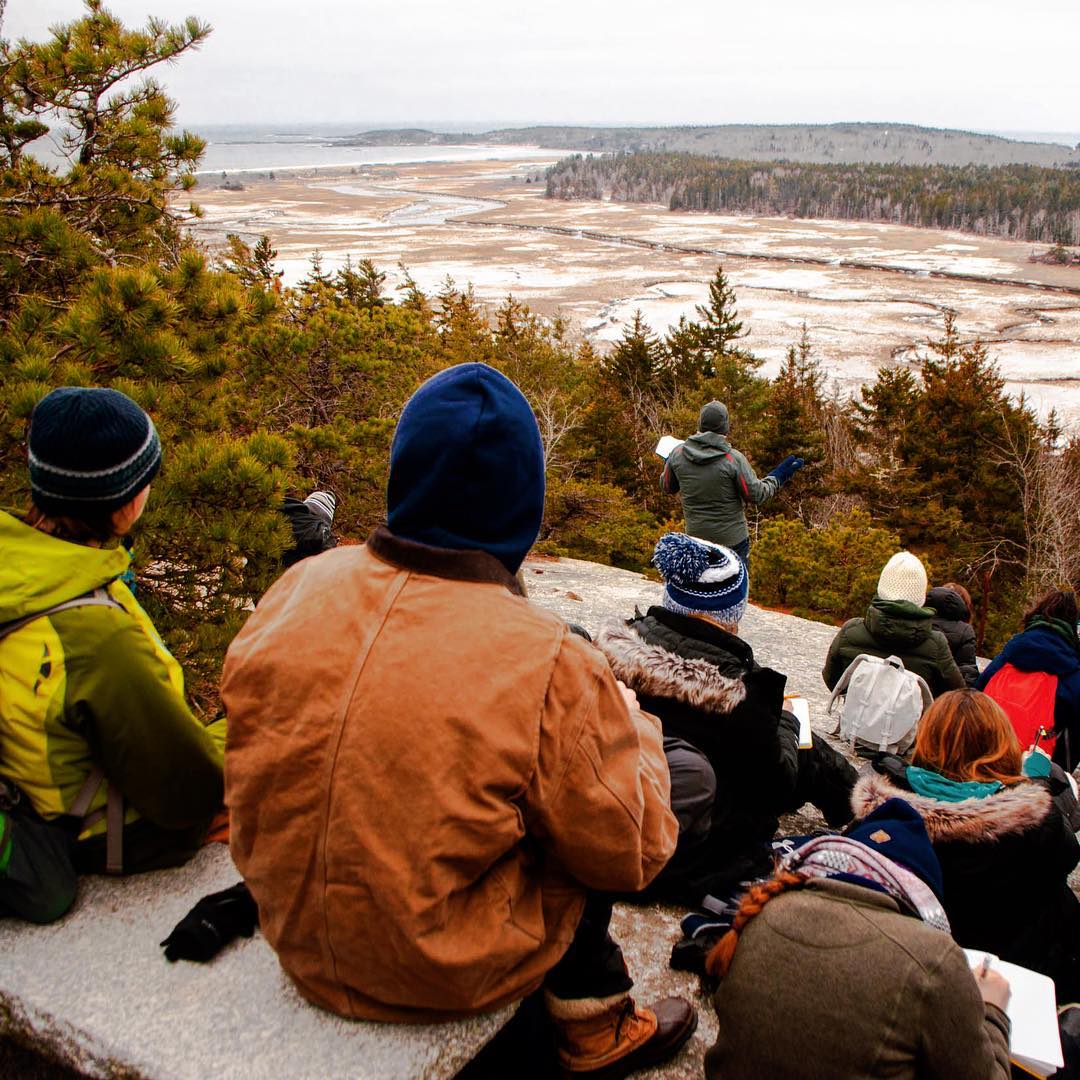 “There’s a lot to take in at once,” acknowledges Amelia Platt (Montclair, New Jersey; Montclair High School). She and her peers from around the country are making transitions in many different ways. For example, she says, “I have never lived with the people I go to school with and my teachers, so that’s a really new experience for me.”
“There’s a lot to take in at once,” acknowledges Amelia Platt (Montclair, New Jersey; Montclair High School). She and her peers from around the country are making transitions in many different ways. For example, she says, “I have never lived with the people I go to school with and my teachers, so that’s a really new experience for me.”
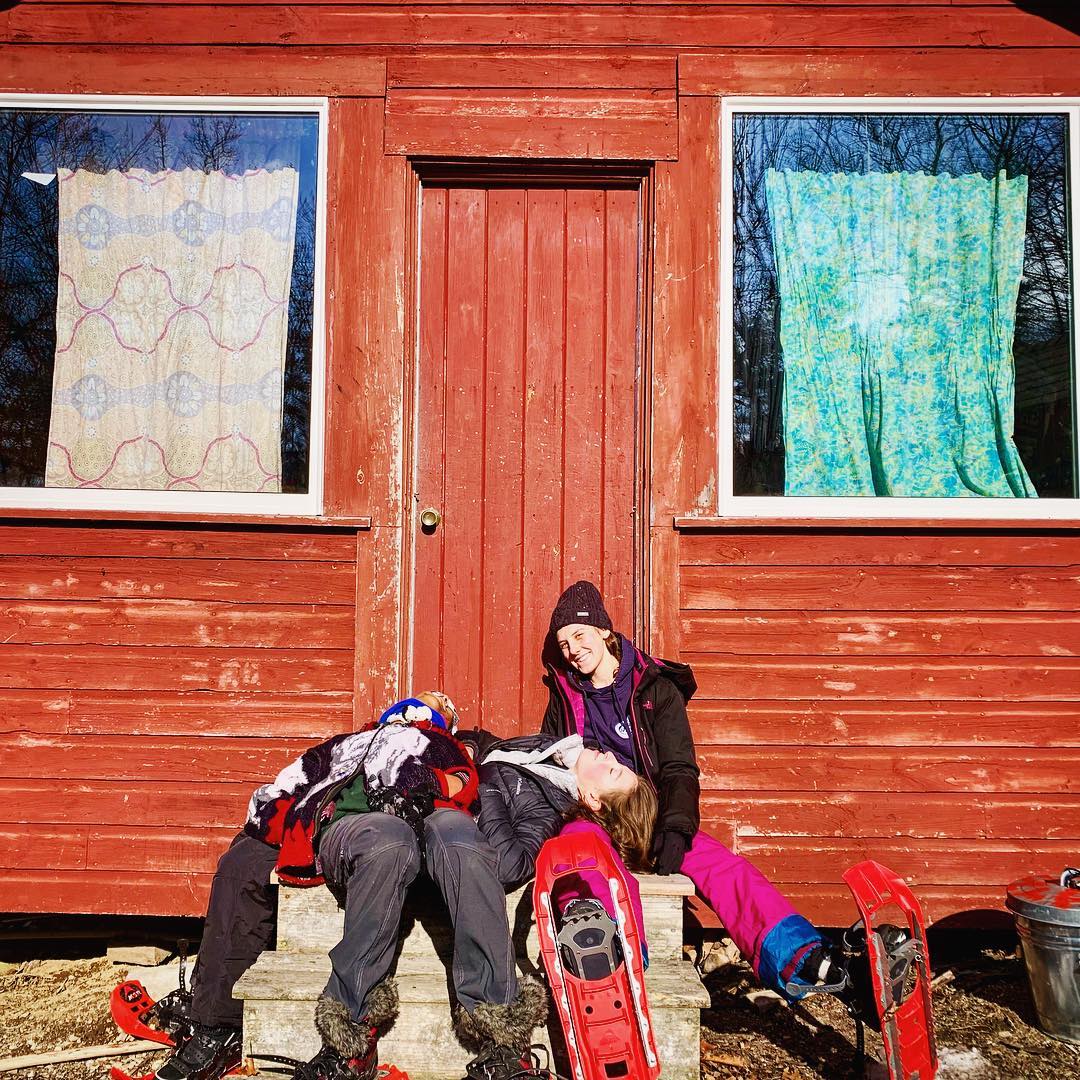
Some take a cultural anthropologist’s interest in their new life. Nick Kowalski (Dallas, Texas; St. Mark’s School of Texas) stopped his cabin mates in their tracks when he said to one looking for his headlamp, “If that was a snake, it would jump up and bite you!” Kowalski explains, “That’s a common saying where I come from.” Cabin mate Malcolm McGraw (Newton, Massachusetts; Newton South High School) remembers, “When Nick said it, we were all just confused. I guess it makes sense if you live in a place with snakes.”
Kowalski adds, “There’s a whole snow-and-ice vocabulary and things people do to deal with this weather that I know nothing about.” He and Te Markiewicz (Richmond, Virginia; Collegiate School) comforted each other and amused everyone else at their lunch table by listing words and expressions they don’t hear in Maine, including ma’m, sir, sugar pie, moon pie, and bless your sweetheart. They find Northerners’ frequent use of “you guys” (to mean “everybody in front of me”) a bit weird.
For some, Chewonki classes are also a change, and Portia Holt (Seattle, Washington; Holy Names Academy) is enjoying the difference. “Classes here are structured differently than at my regular school,” she says. “These are more discussion-based. People are really encouraged to get involved in class conversations and they jump right in.”

Max Mogul (New York, New York; the Beacon School) appreciates that “class sizes are much smaller. You can’t hide. Also, back at my school, technology is really distracting…I think it’s good to be disconnected. It’s not really hard to be off it. I like it.” Emma Campbell (Starksboro, Vermont; Mount Abraham Union High School) agrees. “The way I feel is that I have limited time to be here and I don’t want to waste it in front of a screen,” she says.

